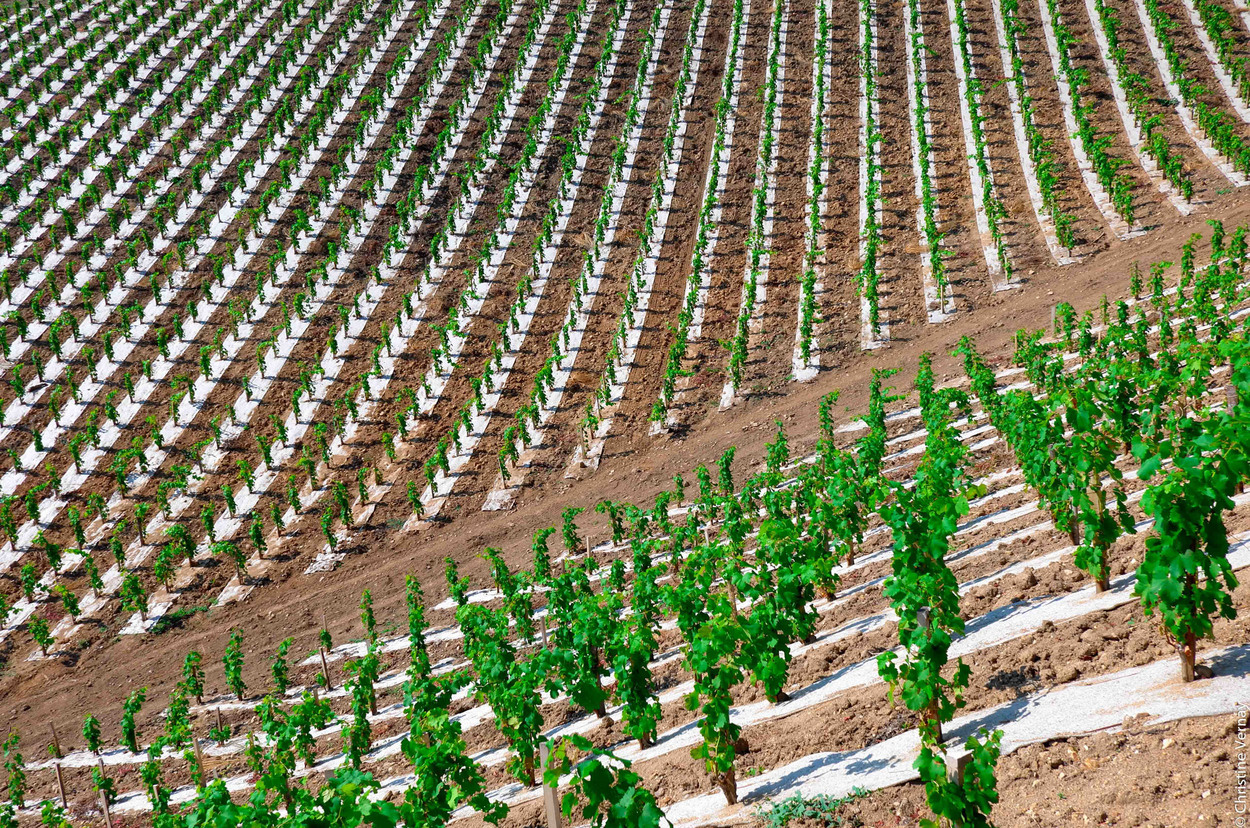The hillsides of Condrieu and Côte-Rôtie are places with a rich and dual heritage. They are not only vineyards set on land which must be kept for crops, they also represent a vital natural rural heritage. They require regular maintenance to repair the low stone walls that support the terraces and the steps that connect them.
Although Georges Vernay is recognised as having saved these hillsides, Christine has watched over them since 1996, an heiress taking care of her inheritance, but also an experienced winemaker and manager of an Estate that she runs and develops according to her values and beliefs.
She regularly rebuilds the “chaillées”, the dry-stone walls that support the terraced vines and replants the vines, all to ensure this exceptional heritage is maintained.












